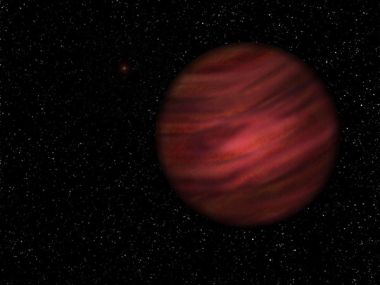Astronomers discover planet circling star a trillion kilometres away: Cosmic mystery beyond man's reckoning

Think our solar system is already too big to explore and understand? Well, here's something that will make you think again.
A team of international scientists recently found out that a planet earlier thought to be floating alone in space is actually part of the biggest solar system ever discovered, way bigger than our own.
This giant planet, called the 2MASS J2126, was found to have a colossal orbit a trillion kilometres away from the star it revolves around.
If compared to our own solar system, that's around 6,900 times the distance between the Sun and the Earth, according to Popsci.com.
This also means that the giant planet will take 900,000 Earth years for it to complete a revolution around its host star.
The researchers published their findings in the Monthly Notices of the Royal Astronomical Society.
In a statement, lead author Dr. Niall Deacon from the University of Hertfordshire in the United Kingdom compared 2MASS J2126 and its host star to "a very long distance relationship."
"This is the widest planet system found so far and both the members of it have been known for eight years, but nobody had made the link between the objects before. The planet is not quite as lonely as we first thought," Deacon said, as quoted by CNN.
Simon Murphy of Australian National University, who was also part of the study, meanwhile said their team is now interested on how the previously though rogue planet can exist so far away from its host star, but still be connected to it.
"How such a wide planetary system forms and survives remains an open question," Murphy told CNN.
He nevertheless posited that this humongous solar system underwent a process of formation different from our own solar system.
"There is no way it formed in the same way as our solar system did, from a large disc of dust and gas," Murphy said in a statement.











